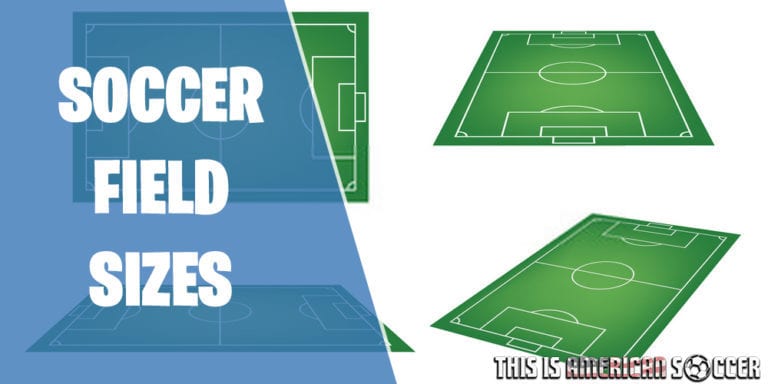For many, the concept of relegation in soccer may seem quite alien yet it is an important part of the game in many countries and their respective leagues. Relegation works with a promotion in that teams are transferred down from one division (relegation) and up from another (promotion).
How a team suffers from relegation can differ between leagues too as there are different ways to determine who gets demoted from a league.
While some soccer leagues in the United States, Canada, Australia, and Singapore maintain the same teams year after year, relegation can make the league standings much more interesting.
In this guide, we will look at understanding relegation in soccer.
What Is Relegation In Soccer?
If you only have one league in a single sport then the concept of relegation does not appear. The same teams will be in the same league, no matter how low they finish in the standings.
That is certainly the case in the United States where you have the MLS in soccer. No team is demoted as there is no league below them to be demoted to.
North American sports, including soccer, tend to operate self-contained leagues. Clubs become familiar with each other as they largely play against the same teams every year.
There may be changes when a new club joins a league or an old club leaves yet there are few changes as relegation does not apply.
That is certainly the case in soccer in the MLS but also in football in the NFL, basketball in the NBA, and baseball in the MLB where the elite leagues are known to be closed or static.
In English soccer, there is a vast league system that has the Premier League at the very top. In the Premier League, the bottom three teams in the standings at the end of each season are relegated to the Championship.
To replace those three teams, two teams are promoted automatically, and then another team triumphs in the playoffs to ensure that the league has a total of 20 teams.
You could call relegation one of the large distinctions between how the league structure works in North America versus in Europe.
The concept of relegation will apply to every single team in the league. It does not matter who owns them, how long they have spent in the league, or how many times they have finished top of the league.
Should that team perform badly over the course of the season and finish bottom of the league standings then they will be relegated and play in a lower league the following season.
Indeed, the prospect of relegation can spur a team on to avoid that pitfall so they may finally win some matches at the end of the season to stay in the league.
Also Read: 9 Best Soccer Formations of All Time
The Pros Of Relegation In Soccer
The concept of relegation, and with it promotion, brings a sense of excitement to the positions in a league standing. This is certainly seen at the bottom of the league standings as clubs try their very best to remain in a high division.
While in America, a team’s fans can become disinterested towards the end of a season and stop caring about their team. If relegation is at stake then they can be interested all year long, just as they would if the team was competing at the top of the league standings.
With relegation, a league system becomes vastly more intriguing as the teams change every year. That could mean a local rivalry appears for one season and it could be a few years before it happens again if one team gets relegated out of the league.
The fact that a team gets effectively punished for not performing well enough in a season also means that there is more at stake. That a team could be replaced also gives a team from a lower league more of an incentive to do well and enjoy the riches of being in a higher league.
Thanks to the concept of relegation, it also means that lower teams can get to dream big. New clubs have to start at a lower level in a lower league yet gradually they can make their way to the top.
It does mean that the club would have to win the league, finish in the promotion places, or win a playoff, to achieve promotions yet anything is possible. The process may take decades yet gradual improvement can be rewarded by playing in higher leagues and receiving a higher income.
Due to the sheer amount of teams and leagues that are currently in operation in European countries like England, Spain, and Germany, relegation is likely to remain. It is the easiest way to organize league standings and to fairly penalize teams for their poor performances over a season.
A closed or static system, like the one used in the MLS, is unlikely to catch on in Europe though there has been an attempt to make it happen, which we will look at later.
Also Read: Why Do Soccer Cleats Smell So Bad?
The Cons Of Relegation In Soccer
The financial repercussions of relegation in soccer can mean that some clubs simply go bankrupt and cease to exist. Though the rewards in the top league can be markedly higher compared to lower leagues, the repercussions can be shockingly extreme.
Competing for players can be a risky business and if the income for a club is reduced following a relegation then those players may want to move on to stay in the same league.
As a club’s best players leave, the team would be depleted and find it harder to win promotion, which can mean a vicious cycle for the club itself.
Relegation can seem to be an unfair punishment should a club be penalized for financial mismanagement. That does occur in several leagues where points will be deducted during the season or even before a league season has started.
While the team may not be at fault, the punishment can eventually result in the club being relegated simply because the finances were not in order.
The Consequences Of Relegation In Soccer

Teams fight hard for their league standing as relegation can have several repercussions, it is not just a movement from one league to another. For instance, the top league in any national system will have more money from television, sponsorship, and advertising rights.
This money is put into a pot and divided between teams at the end of the season. Notably, teams that finish higher in the league standings will be awarded more money.
That money can be highly important for how a soccer club operates, for instance, how much money they can afford in their budget to transfer players. If a club is relegated then it may be years before they return to the top league and that’s with a reduced income.
Players may still be on the same wages yet with less money coming in, staff at the club may be released simply to cover costs. Also, interest in the team may dissipate if the club is playing in a lower league.
These consequences may sound drastic to a fan of an American soccer club yet are part of soccer reality in European leagues. That does give the leagues more of an edge as a team in MLS can remain bottom of the league standings year on year and still remain in that league.
European leagues can be said to be more competitive simply because there are more consequences for performing badly over a season, namely relegation.
In most cases, relegation is a means of telling a team that they have simply not been good enough over the course of a league season. That team has accumulated the least amount of points at the end of a season, they have likely scored fewer goals, and conceded more than most of the other teams.
In that sense, the team is not fit to remain in the league and relegation means that they are likely to be able to compete better with teams that have similar abilities to their own.
Also Read: Best Youth Soccer Cleats for Wide Feet
The Relegation Zone
For a club to be relegated at the end of a league season, they would have finished in the relegation zone in the final league standings. This is the case in Europe where underperforming teams try their utmost to ensure that they do not finish in the relegation zone come the end of the league season.
For instance, in the English Premier League, the relegation zone consists of the bottom three places in the league standings. If you were to see a table of the entire league standings then the relegation zone will likely be highlighted in a different color than the rest of the standings, most notably red.
The number of clubs that can fill the relegation zone can vary between leagues. There are three spots in the English Premier League, just as there are in Italy’s Serie A and La Liga in Spain. However, there are only two spots in the German Bundesliga and only one spot in Mexico’s Liga MX.
Then again, the Brasileirao in Brazil has a total of four spots, just like the Argentine Primera which is Argentina’s league.
The Early Form Of Relegation – Re-Election
Relegation has not always been the means by which clubs have been relegated from leagues. In the early days of the English Football League, the league was not closed but a system was put in place to punish poorly performing teams.
The system meant that the worst teams in the league standings at the end of the season were required to win re-election. This was set for the bottom four teams in the league standings, then it became the bottom three which is likely where the concept of the relegation zone was first seen.
Re-election required teams to re-apply for their league place against a team in the league below. Essentially, clubs either gathered enough votes to remain in the league or were demoted and entry was allowed to the league for a club from the league below as a promotion.
The system was still in place at the bottom of the Football League until 1986 and generally meant that smaller clubs found it harder to win promotion.
From the 1986-87 season onwards, direct promotion and relegation were installed as the means for deciding the teams that were to play in the Football League going forward.
The European Super League
There have been discussions about a closed league system in Europe, featuring the elite clubs. The European Super League (also known as The Super League) was proposed as a breakaway league that featured the likes of Manchester United, AC Milan, Barcelona, Real Madrid, and Chelsea.
Essentially, the same European clubs would play each other as a commercial enterprise to go against UEFA’s Champions League.
While there has been talk of such a league being formed, such a closed or static league has suffered a backlash. Fans across Europe, including of the clubs that were due to be involved, revolted against the plans and it was quickly scrapped.
It only took a few days of the plans for the European Super League being announced for nine of the clubs who were said to be involved, to withdraw their interest. However, the remaining clubs have announced that they intend to reshape the project so it may not be the last that we have heard of it.
Final Thoughts
The concept of relegation does act as a wake-up call to several underperforming clubs and declining teams. If a team has one bad season then the club can be relegated and they may find it incredibly difficult to be promoted back to that higher league.
Clubs that were once part of the top division can begin a long slide down the leagues and even go out of business as a consequence of relegation. For leagues that do use relegation, it should make the league standings more interesting than the North American MSL.
Frequently Asked Questions
What Are The Financial Consequences Of Being Relegated To The Championship From The English Premier League?
Clubs that are relegated from the English Premier League play their following season in the league below, which is the Championship.
The relegation will be costly as clubs will likely lose sponsorship deals and advertising deals as well as be faced with the likelihood that they will have to pay their players the same wages, even with that reduced income.
Many sponsors tend to insert ‘relegation clauses’ into their contracts with clubs so that if they are relegated, the sponsors will pay less.
However, relegated clubs do get ‘parachute payments’ which do ease the financial blow and are distributed over three years, two if the club only spent one season in the Premier League.
How Does Relegation Work In Tournaments?
Though it is to a limited extent, relegation is part of tournament soccer too. For instance, in an international tournament like the World Cup, teams progress to the next stage based on how well they did during the group stage.
In some tournaments, just one country will be relegated out of the tournament at the group stage but in the World Cup, the bottom two teams in every group will be sent home. Such a system does make the group stage much more interesting as teams compete for every point.







